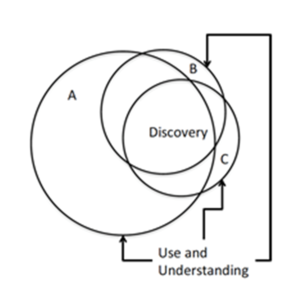Difference between revisions of "Category:Documentation Connections"
| Line 9: | Line 9: | ||
== Preface == | == Preface == | ||
| − | The following pages are intended to help understand connections between metadata dialects in order to implement complete and consistent metadata. For convenience, this reference is divided into 5 major sections, consisting of: Introductory Material, Documentation Recommendations, Metadata Implementation, Documentation Selection Scenarios, and the | + | The following pages are intended to help understand connections between metadata dialects in order to implement complete and consistent metadata. For convenience, this reference is divided into 5 major sections, consisting of: Introductory Material, Documentation Recommendations, Metadata Implementation, Documentation Selection Scenarios, and the Appendixes. Each of these sections is further divided into subsections. |
For your reference, a full table of contents is provide below. | For your reference, a full table of contents is provide below. | ||
| − | |||
== Table of Contents == | == Table of Contents == | ||
Revision as of 18:55, June 11, 2015
Introduction
The ESIP Community supports a vast array of systems that are accessed and utilized by a diverse group of users. Historically, groups within the community have approached metadata differently in order to effectively describe their data. As a result, similar dialects have emerged to address specific user requirements. The multi-dialect approach described above hinders interoperability— as it results in different terminology being used to describe the same concepts. By clearly depicting fundamental documentation needs and concepts and mapping to them in the different dialects, confusion is minimized and interoperability is facilitated. Thus, demonstrating connections between dialects increases discoverability, accessibility, and reusability of data via consistent, compatible metadata.
This document describes the connections between fundamental concepts in dialects used throughout the ESIP Community – such that effective communication is maintained even when different metadata models are employed.
Preface
The following pages are intended to help understand connections between metadata dialects in order to implement complete and consistent metadata. For convenience, this reference is divided into 5 major sections, consisting of: Introductory Material, Documentation Recommendations, Metadata Implementation, Documentation Selection Scenarios, and the Appendixes. Each of these sections is further divided into subsections. For your reference, a full table of contents is provide below.
Table of Contents
Section 1 - Let's Start at the Beginning
Section 2 - Documentation Recommendations
Section 3 - Metadata Implementation
- Documenting Browse Graphics
- Documenting Catalog Services For the Web (CSW)
- Documenting Citations
- Documenting Constraints
- Documenting Data Centers and Distributors
- Documenting Distribution Information
- Documenting Identifiers
- Documenting Keywords
- Documenting Online Resources
- Documenting People and Organizations
- Documenting Projects
- Documenting Resource Content
- Documenting Resource Identification
- Documenting Resource Lineage
- Documenting Resource Originator
- Documenting Services
- Documenting Spatial and Temporal Extents
- Documenting the Big Earth Data Initiative
- NetCDF-CF File Examples for Satellite Swath Data
- Supporting Dataset Creator Searches
- Supporting Text Searches
Section 4 - Documentation Selection Scenarios
Section 5 - Appendixes
- Appendix 1: Acronym Glossary
- Appendix 2: Concepts Glossary
- Appendix 3: Recommendations Index
- Appendix 4: Success Stories
Pages in category "Documentation Connections"
The following 6 pages are in this category, out of 6 total.
